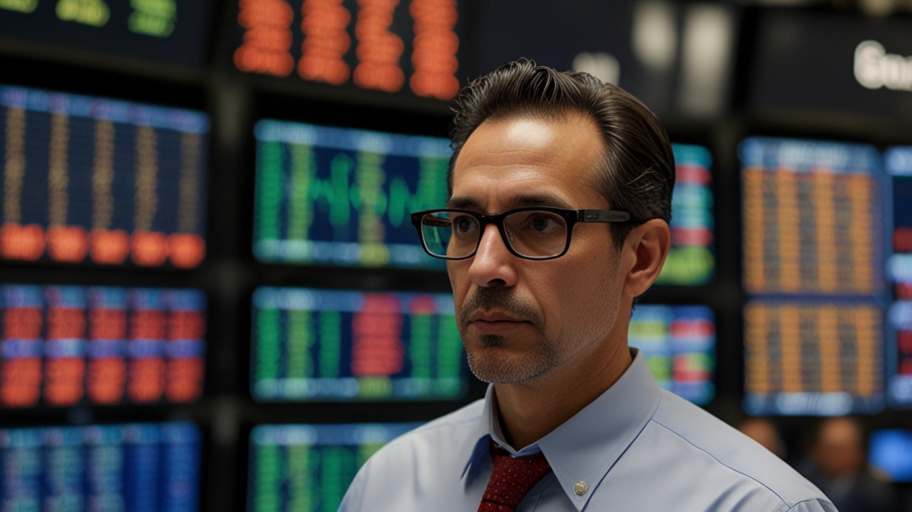On Tuesday, the international financial markets saw mixed performances as the United States plan to impose import levies caused apprehension. European markets were able to achieve a higher closing on the preceding day. Unfortunately, the positive sentiment didn’t last long since the forthcoming introduction of tariffs began to serve as a reality check to the market.
Yesterday, the London-based FTSE 100 Index, Germany’s DAX, CAC 40, Paris, and the Italian FTSE MIB each began the trading session down as per the market data information. The downtrend movement is seen through the lens of the anxiety of global investors marking time ahead for the onslaught of a string of new trade tariffs the administration is expected to announce.
A major news channel reported earlier this week that according to information they had obtained, the announcement of certain tariffs under the heading of “reciprocal tariffs” will be made today and will have as their target “all countries.” If that is the case, this US government’s tariffs will do an about-turn in the global financial markets immediately.
Unverified reports in the media have indicated that the most likely percentage figure for the new tariff is in the region of 20%. However, it is unclear what the ultimate action will look like as various hypothetical and potential regulations are currently being discussed and may change prior to final implementation.
In a fresh round of measures, come the 1st of June, there is going to be an additional 25% duty on “all cars not manufactured in the United States”. This has caused a steepest fall of European car stocks, which are mainly of the German DAX sector, and has become a matter of great concern.
Besides this announcement, the financial sector has seen major changes as the regulators have finally given their green light to a proposal for a merger of two large banks. The direct offer will remain open from the 28th of April to the 23rd of June and during that period, existing shareholders have the right to own newly issued shares with full dividend benefits.
The consolidation in the baking sector comes on the back of an unexpected share purchase late last year and is so far the biggest potential deal in the European financial sector. As reported in the beginning, the bank that was targeted claimed that the offer failed to portray their profitability or the room for further growth of the bank in a truthful way.
Market strategists hold the view that the high tensions in the markets will likely continue throughout the year. Some analysts compare this year’s economic uncertainties to the past, where trade tensions led to short-term market disruptions ultimately leading to a more dovish monetary policy adopted by the several central banks.
This policy of creating economic pressure to induce monetary policy easing is considered a risky game by certain specialists. The fact that the inflation rate is still higher than the set limits for other economies, the additional heat on the prices due to tariffs might be a further source of confusion for the central banks in decision making.
A larger budget deficit in the United States’ government might be a result of trade conflicts that wax. Such an event will not be good for the rates market and might cause problems to European bond yields and currency valuations.
Concurrently, contradictory patterns are being shown by different sectors against an uncertain market background. The pharmaceutical sector is coming under pressure, whereas, some shipping companies have secured major acquisitions in a short span of time.
Due to events of this nature, now more than ever, institutional investors are looking at their portfolios with caution. To minimize the overall risks connected with the trade tensions that go upwards, diversification, and hedging mechanisms are being utilized.
Currency markets are responding to the uncertain situation, and this may also have a serious impact on the European exporters. Any considerable strengthening of the euro in relation to the dollar could not only add to the problems of the companies that are already working under the new tariff barriers but create the challenges that have the power to eclipse the previous ones.
Market mood will very much depend on the news that investors will receive in the coming days. It will be the moment when investors will get the full details of the tariff announcements.
Analysts warn about impulsive actions and fear hasty decisions will have negative consequences. They think that the complete economic results will not come out immediately, but we need to wait for the right time to evaluate them.
The question with which politicians are confronted is how to address the situation in a proper manner that this will be for the general benefit of not only the power but also that of the economy.
Since protective actions can reduce the political demand for activity, they can also further increase tensions and those parties that receive the palliative will risk being affected by the turning point of European economies.
